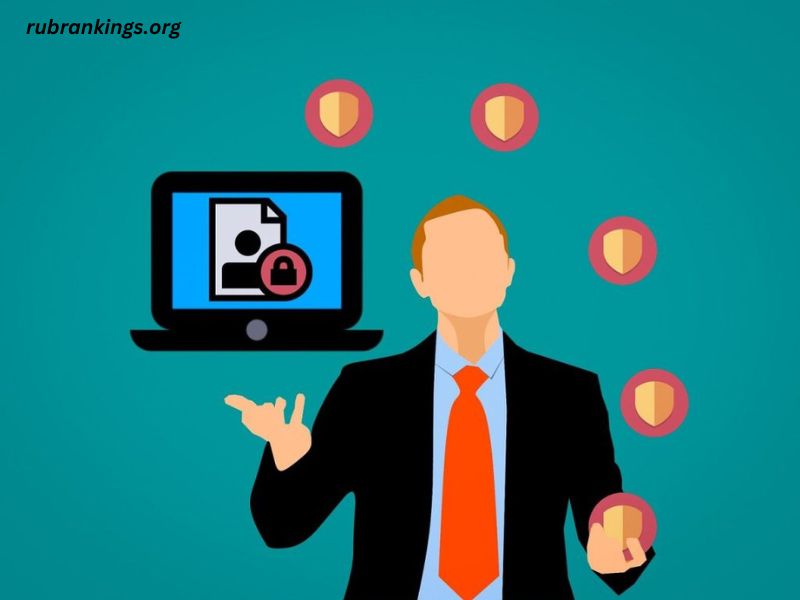In today’s digital age, the importance of protecting our personal information has never been more crucial. From online banking and social media to healthcare and employment records, our personal data is constantly at risk of being accessed, shared, or misused by unauthorized parties. As individuals, it’s essential that we take proactive steps to safeguard our sensitive information and ensure that our privacy is respected.
One of the key tools in our arsenal for protecting our personal data is the local privacy representative. These individuals or entities play a critical role in ensuring that our rights and privacy are upheld, and their details can provide us with the necessary information and resources to effectively manage and secure our personal information.
Introduction to local privacy representative details
Local privacy representative details refer to the specific information about the individual or organization responsible for overseeing and enforcing privacy regulations within a particular geographical area or jurisdiction. This can include the name, contact information, and specific responsibilities of the privacy representative, as well as the legal framework and guidelines they operate under.
What are local privacy representative details?
Local privacy representative details typically include the following information:
Name and contact information: The name, title, and contact details (such as email, phone number, and physical address) of the designated privacy representative.
Jurisdiction and responsibilities: The specific geographical area or jurisdiction that the privacy representative is responsible for, as well as their key duties and responsibilities in protecting individual privacy.
Applicable laws and regulations: The relevant privacy laws, regulations, and guidelines that the privacy representative is tasked with enforcing and upholding.
Complaint and enforcement procedures: Pylon Setting File for BonsaiThe process for filing privacy-related complaints or concerns, as well as the enforcement mechanisms and potential consequences for violations.
Educational resources: Any educational materials, training programs, or guidance provided by the privacy representative to help individuals and organizations understand and comply with privacy requirements.
Why are local privacy representative details important for protecting your personal information?
Local privacy representative details are crucial for several reasons:
Accountability and oversight: Having a designated privacy representative ensures that there is a clear point of contact and accountability for the protection of personal information within a specific jurisdiction.
Compliance and enforcement: The privacy representative is responsible for monitoring and enforcing compliance with relevant privacy laws and regulations, which helps to ensure that your personal information is being handled appropriately.
Guidance and support: The privacy representative can provide valuable guidance, resources, and support to help individuals and organizations understand their privacy rights and obligations, as well as how to effectively protect personal data.
Dispute resolution: If you have a privacy-related concern or dispute, the local privacy representative can serve as a neutral third party to help investigate, mediate, and resolve the issue.
Empowerment and control: Knowing your local privacy representative details empowers you to take a more active role in managing and protecting your personal information, rather than leaving it solely in the hands of organizations or service providers.
Legal requirements for local privacy representative details
The specific legal requirements for local privacy representative details can vary depending on the jurisdiction and the applicable privacy laws and regulations. However, in many cases, there are certain mandatory disclosures and transparency requirements that organizations must adhere to, such as:
Publicly available contact information: Organizations are often required to make the contact details of their designated privacy representative publicly available, such as on their website or in their privacy policy.
Notification of changes: If there are any changes to the privacy representative or their contact information, organizations may be required to promptly notify individuals and update the publicly available details.
Compliance with data subject rights: The privacy representative is responsible for ensuring that individuals can effectively exercise their rights, such as the right to access, correct, or delete their personal data.
Cooperation with regulatory authorities: The privacy representative may be required to cooperate with relevant regulatory authorities, such as data protection agencies, to investigate and address privacy-related complaints or concerns.
How to find and verify your local privacy representative details
Locating and verifying your local privacy representative details can be a straightforward process, but the specific steps may vary depending on your location and the applicable privacy laws. Here are some general guidelines:
Check your organization’s privacy policy or website: Many organizations are required to publicly disclose the contact information for their designated privacy representative. Start by checking your employer, healthcare provider, or any other service provider’s privacy policy or website.
Contact your local data protection or privacy authority: If you’re unable to find the details through your organization, you can reach out to your local data protection or privacy authority, which may be able to provide you with the contact information for the relevant privacy representative.
Verify the information: Once you have the contact details, it’s important to verify that the information is accurate and up-to-date. You can do this by cross-checking the details with official government or regulatory sources, or by directly contacting the privacy representative to confirm their identity and role.
Tips for safeguarding your personal information
In addition to understanding and utilizing your local privacy representative details, there are several other steps you can take to safeguard your personal information:
Be cautious with sharing personal data: Carefully consider the necessity and sensitivity of any personal information you provide, and only share it with trusted and authorized parties.
Use strong and unique passwords: Ensure that all your online accounts have strong, unique passwords that are regularly updated.
Enable two-factor authentication: Whenever possible, enable two-factor authentication to add an extra layer of security to your accounts.
Monitor your accounts and credit reports: Regularly review your financial statements, credit reports, and other account activity to detect any unauthorized access or suspicious activity.
Be wary of phishing and scams: Be cautious of unsolicited emails, phone calls, or messages requesting personal information, as these could be attempts to steal your data.
Keep your software and devices up-to-date: Ensure that all your devices and software are regularly updated to address any security vulnerabilities.
Common misconceptions about local privacy representative details
Despite the importance of local privacy representative details, there are several common misconceptions that can hinder individuals from effectively utilizing this resource:
“My personal information is already protected.” While many organizations have privacy policies and security measures in place, the local privacy representative plays a crucial role in ensuring that these policies are properly enforced and that individual rights are upheld.
“I don’t need to know my local privacy representative’s details.” Knowing your local privacy representative’s contact information and responsibilities can empower you to take a more active role in managing and protecting your personal data.
“My privacy representative doesn’t have any real power.” Local privacy representatives are often backed by robust legal frameworks and enforcement mechanisms, and they can play a significant role in investigating and resolving privacy-related issues.
“I don’t have any privacy concerns, so I don’t need to worry about this.” Even if you don’t currently have any privacy-related issues, understanding your local privacy representative’s role and responsibilities can help you be better prepared to address any future concerns that may arise.
The role of local privacy representative details in GDPR compliance
The General Data Protection Regulation (GDPR) is a comprehensive privacy law that has been widely adopted across the European Union and beyond. One of the key requirements of GDPR is the designation of a data protection officer (DPO) or privacy representative, who is responsible for overseeing and ensuring compliance with the regulation.
For organizations operating within GDPR-covered jurisdictions, having accurate and up-to-date local privacy representative details is essential for demonstrating compliance. This includes:
Publicly disclosing the DPO’s contact information: Organizations must make the contact details of their designated DPO publicly available, such as on their website or in their privacy policy.
Cooperating with regulatory authorities: The DPO must be prepared to cooperate with relevant data protection authorities, such as by providing information or assisting with investigations.
Facilitating data subject rights: The DPO is responsible for ensuring that individuals can effectively exercise their rights under GDPR, such as the right to access, correct, or delete their personal data.
Implementing appropriate security measures: The DPO must work with the organization to ensure that appropriate technical and organizational measures are in place to protect personal data.
By understanding and utilizing your local privacy representative details, you can play a more active role in ensuring that your personal information is being handled in compliance with GDPR and other relevant privacy laws and regulations.
Conclusion
In today’s digital landscape, the protection of our personal information has never been more critical. By understanding and leveraging the power of your local privacy representative details, you can take a more proactive approach to safeguarding your sensitive data and ensuring that your privacy rights are respected.
Remember, your local privacy representative is a valuable resource that can provide guidance, support, and accountability in the management of your personal information. By staying informed and engaged with their role and responsibilities, you can empower yourself to take control of your data and feel more secure in the digital world.



